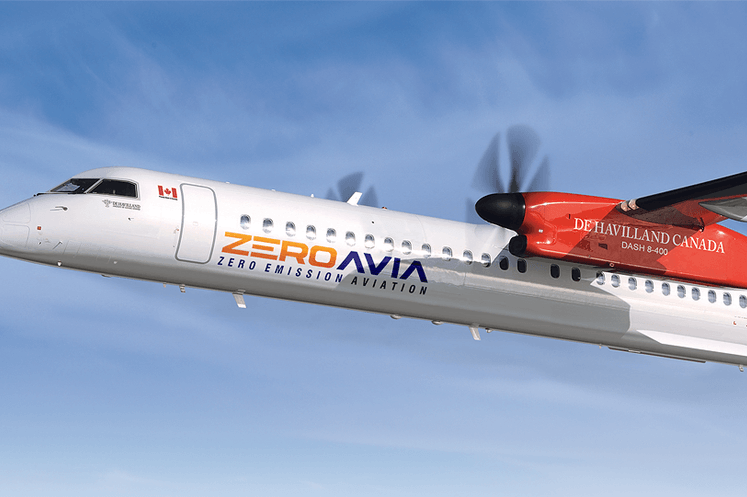De Havilland Canada and ZeroAvia signed a Memorandum of Understanding (MoU) to design and develop hydrogen-electric engines for both new and in-service Dash 8-400 aircraft. Dash 8-400 aircraft with hydrogen-electric propulsion could be flying within the next five years.
As part of the MoU, the Canadian manufacturer will be offered 50 options for ZeroAvia hydrogen-electric engines once the final agreement is completed.
As part of the development program, ZeroAvia will create a flight demonstrator using a Dash 8-400 aircraft to “showcase the operational and commercial potential of the engine” prior to its certification. ZeroAvia will target its ZA2000 powertrain for De Havilland Dash 8 aircraft.
“De Havilland Canada has a strong belief in hydrogen-electric technology as a viable solution for de-carbonizing aviation,” said Dave Riggs, Chief Transformation Officer, De Havilland Aircraft of Canada.
Currently, ZeroAvia is preparing to certify its ZA600 powertrain in the coming weeks. Meanwhile, the 1.8MW variant of ZeroAvia’s ZA2000 engine program is scheduled to be demonstrated by the end of 2022. The hydrogen-electric aircraft manufacturer aims to certify its ZA2000 engines to support 40-80 seat aircraft capable of flying over 700 nautical miles (1,296 kilometers) by 2026.
“Partnering with De Havilland Canada puts ZeroAvia on a defined pathway to line-fitting into new airframes and signals OEM appetite to make the switch to certified, zero-emission propulsion as soon as possible,” Val Miftakhov, chief executive officer and founder of ZeroAvia, said.
In October 2021, ZeroAvia signed an agreement with Alaska Air (ALK) to develop a hydrogen-electric engine capable of flying 76-seat regional aircraft in excess of 500 nautical miles (926 kilometers).

